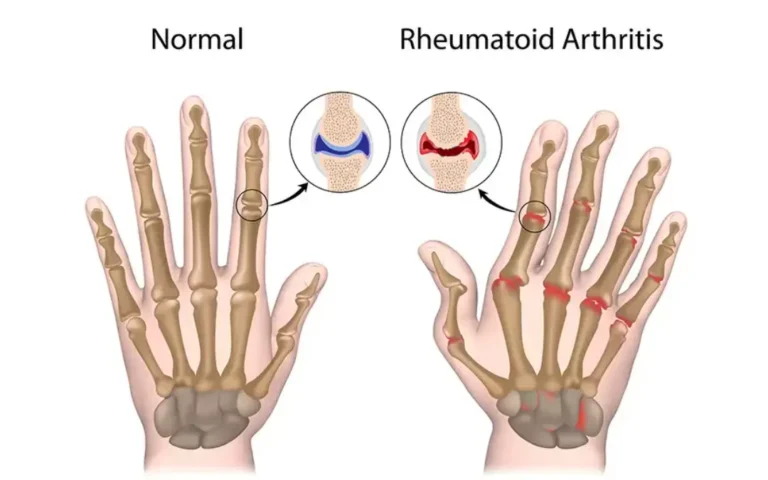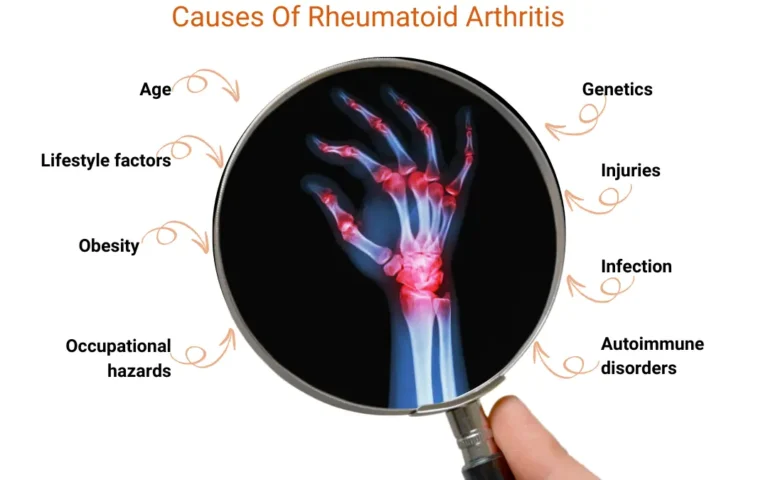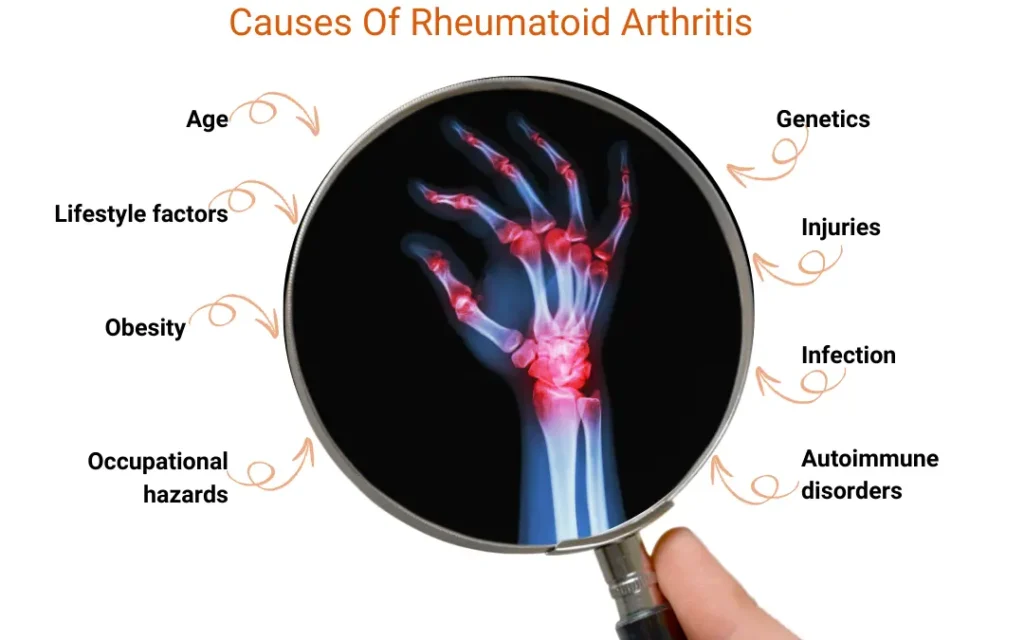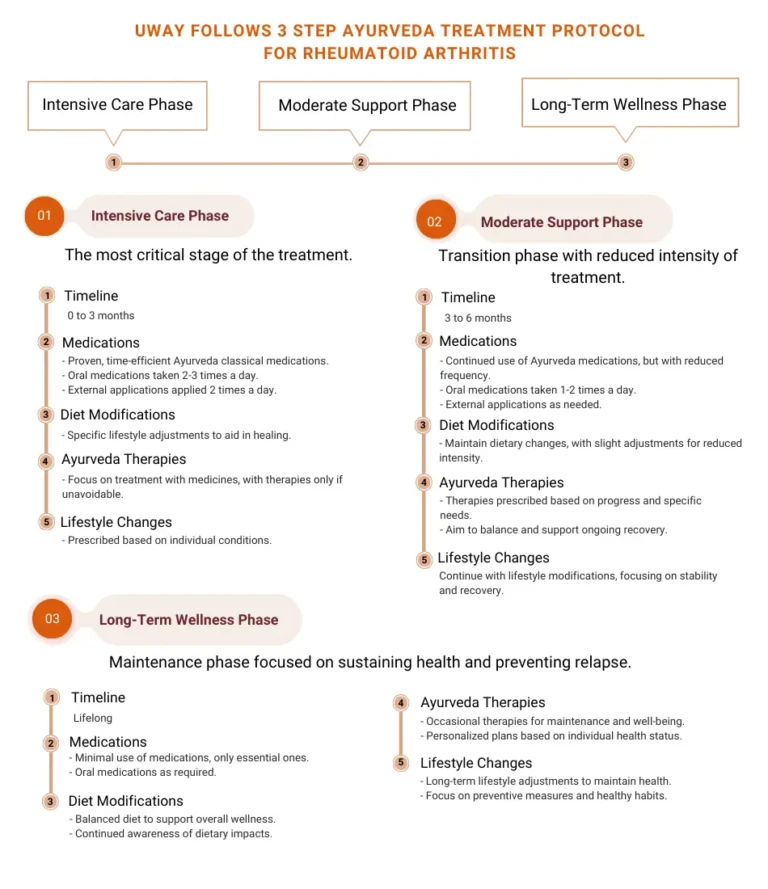Ayurveda treatment for Rheumatoid arthritis
What is Rheumatoid Arthritis?
Rheumatoid arthritis (RA) is a chronic inflammatory disorder that affects not only the joints but can also impact various other systems in the body, including the skin, eyes, lungs, heart, and blood vessels. As an autoimmune condition, rheumatoid arthritis occurs when the immune system mistakenly attacks healthy tissues, causing widespread inflammation. This leads to joint pain, swelling, and potential long-term damage, including bone erosion and joint deformity. Managing rheumatoid arthritis can be challenging, but many people are now turning to Ayurveda treatment for rheumatoid arthritis, which offers a natural, holistic approach to controlling symptoms and addressing the root causes of the condition.
Symptoms of Rheumatoid Arthritis
Common symptoms of rheumatoid arthritis include persistent joint pain, stiffness, tenderness, and swelling, especially in smaller joints like the fingers and toes. Morning stiffness is a hallmark sign, often lasting for hours or worsening after periods of inactivity. Other symptoms may include:
- Tender, warm, and swollen joints
- Fatigue, low-grade fever, and loss of appetite
- Symmetrical symptoms affecting both sides of the body
As the disease progresses, larger joints such as the wrists, knees, hips, and shoulders may also be affected. In addition to joint-related issues, around 40% of rheumatoid arthritis patients experience complications in other areas of the body, including the skin, lungs, heart, and eyes.

Causes of Rheumatoid Arthritis
The causes of arthritis can vary depending on the specific type of arthritis, but here are some common factors that contribute to the development of arthritis:
- Age: The risk of developing arthritis increases with age. As we age, the cartilage in our joints may wear down, leading to joint pain and inflammation.
- Genetics: Some types of arthritis, such as rheumatoid arthritis, can be inherited. If someone in your family has arthritis, you may be more likely to develop it too.
- Injuries: Joint injuries, such as fractures or dislocations, can increase the risk of developing arthritis. Injuries can damage the cartilage in the joint, leading to joint pain and inflammation.
- Infection: Certain infections can trigger the development of arthritis. For example, Lyme disease can cause joint pain and inflammation.
- Autoimmune disorders: Some types of arthritis, such as rheumatoid arthritis, psoriatic arthritis, and lupus, are caused by the body’s immune system attacking the joints.
- Obesity: Being overweight or obese puts extra stress on the joints, which can increase the risk of developing arthritis.
- Occupational hazards: Certain jobs that involve repetitive motions or require standing for long periods can increase the risk of developing arthritis.
- Lifestyle factors: Certain lifestyle factors, such as smoking and a sedentary lifestyle, can increase the risk of developing arthritis.


Ayurveda Treatment for Rheumatoid Arthritis at UWAY
The below-mentioned image provides a high-level view of the treatment for rheumatoid arthritis. The duration of each stage and the prescribed medicines can vary depending on the patient’s condition.
In Ayurveda, rheumatoid arthritis is known as Amavata, primarily caused by an imbalance of the Vata dosha. Ayurveda treatment for rheumatoid arthritis focuses on detoxification, restoring balance through diet, lifestyle changes, classical Ayurvedic medicines (herbal remedies), and therapies like Panchakarma. This holistic approach aims not only to reduce pain and inflammation but also to address the root cause of the imbalance, promoting long-term healing and well-being.
For rheumatoid arthritis, UWAY follows 3 specific Ayurvedic protocols, which include:
1. Dietary Modifications:
Treatment involves dietary changes tailored to the underlying issues identified during diagnosis.
A significant part of Ayurveda treatment for rheumatoid arthritis involves tailored dietary recommendations. To balance Vata, it is important to consume warm, cooked foods like grains, lentils, and vegetables, while avoiding raw vegetables and processed foods that can exacerbate inflammation. It is crucial to control food intake to manage rheumatoid arthritis, particularly as patients age.
2. Lifestyle Changes:
Depending on the patient’s condition, UWAY doctors may recommend yoga, meditation, and other lifestyle adjustments.
Gentle movement through yoga and light exercise is encouraged as part of Ayurvedic rheumatoid arthritis care. These activities help maintain joint flexibility, reduce stiffness, and improve circulation. Practices like meditation and deep breathing can also assist in lowering stress, which is often a trigger for rheumatoid arthritis flare-ups.
3. Classical Ayurvedic Medicines:
UWAY doctors prescribe time-tested, proven classical Ayurvedic medicines from India’s top Ayurvedic manufacturers. Each patient’s condition is unique, so there is no one-size-fits-all prescription for this condition.

UWAY doctors design personalized treatment plans, including therapies like Panchakarma. Panchakarma is central to Ayurvedic treatment for rheumatoid arthritis, offering a set of detoxification techniques to cleanse the body of toxins and relieve inflammation. Procedures such as Vamana (therapeutic vomiting), Virechana (laxative therapy), Vasti (colon therapy), and Raktamokshana (blood purification) help reduce joint pain and stiffness while improving mobility.
The Role of Ayurveda in Rheumatoid Arthritis Management
While modern medicine offers a range of treatments, many people are seeking a more natural approach through rheumatoid arthritis cure ayurveda methods. Ayurveda treatment for rheumatoid arthritis offers an individualized plan that addresses not only the physical symptoms but also the underlying imbalances in the body. By focusing on detoxification, diet, and lifestyle adjustments, Ayurveda provides an effective and sustainable approach to managing rheumatoid arthritis and promoting long-term wellness.
FAQ's
At UWAY, our doctors prescribe only proven medicines from well-established and reputed ayurvedic medicine manufacturers. However, just like certain foods do not always agree with everyone, few ayurvedic medicines may cause mild side effects in some patients. This is very rare though. In case you notice any such issue you can always talk to your consulting doctor or our medical team. It is important to consult with a qualified Ayurvedic practitioner before beginning any Ayurvedic treatmen
Yes, lifestyle and dietary changes can improve the long-term prognosis. Examples include consuming anti-inflammatory foods, regular exercise like yoga, stress management techniques, adequate rest, and staying hydrated.
Ayurveda treatment reduces inflammation and manages pain by balancing the body’s doshas through anti-inflammatory herbs, dietary changes, detoxification methods like Panchakarma, and therapies such as oil massages and herbal steam treatments.
Quick, Convenient & Safe Healthcare
chronic conditions in the last 20 years.
How we work?
Chat with Our Medical Advisor Online
Book an Appointment with Doctor
Consult with our Experienced Doctor Online
Get Doorstep Deliver of Medicines
Get Free Assistance with UWAY
Continuous Support By Medical Advisor








